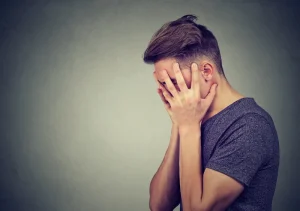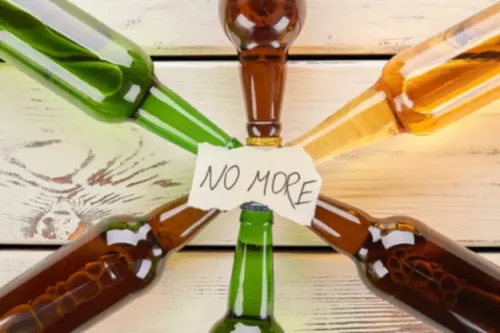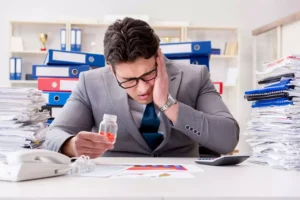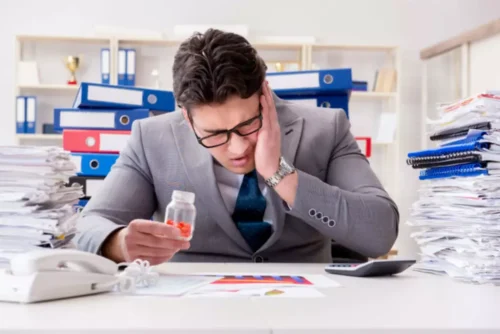Marijuana Addiction Signs, Symptoms, Treatment & Recovery

Because many communities do not offer MA, many seeking support in their recovery will find Narcotics Anonymous (NA) to be a more accessible option. Many people who develop a marijuana habit are able to quit without entering a rehab center since the substance is not as harsh on the brain and body as other, “harder” drugs. We believe everyone deserves access to accurate, unbiased information about mental health and recovery. That’s why we have a comprehensive set of treatment providers and don’t charge for inclusion. We do not and have never accepted fees for referring someone to a particular center. Providers who advertise with us must be verified by our Research Team and we clearly mark their status as advertisers.
- It involves clearing the body of THC, the active substance in marijuana, and managing withdrawal symptoms in a safe and controlled environment.
- For those seeking to understand how to stop weed addiction, addressing these cognitive issues is a crucial part of the recovery process.
- Because of this, they can be the first to intervene through a formal intervention or a more casual conversation voicing their concerns and asking how they can help.
- Marijuana Anonymous (MA) meetings are a great place to start.
- Long-term marijuana use can cause adverse effects both physical and psychological dependence, making it difficult to stop using, and even creating withdrawal symptoms in its users.
- We’ll give you skills to discover your self-worth and show you the tools for a life of hope and promise.
Related Resources

This sense of community and shared experience can be instrumental in maintaining long-term sobriety. Although marijuana may not be physically addictive in the same way as other drugs like heroin or alcohol, the psychological addiction can be powerful. Behavioral disorders, such as gambling addiction or porn addiction, are great examples of the power of mental dependencies. Family members (chosen family or related) also serve as a crucial support system in recovery. Education on addiction, mental health, and recovery can help them become stronger allies for their loved one’s healing. Researched, fact-checked and transparent articles and guides that offer addiction and mental health insight from experts and treatment professionals.
The Benefits of a Structured Daily Schedule in Sobriety

Family members are often the first to notice a loved one’s struggle with marijuana use and addiction. Because of this, they can be the first to intervene through a formal intervention https://ecosoberhouse.com/ or a more casual conversation voicing their concerns and asking how they can help. How you approach the situation depends on your unique circumstances. Many people benefit from a blend of evidence-based therapies, like the ones above, and holistic approaches like art therapy, yoga, and creative writing. Read the latest addiction news and recovery tips from our blog.

Denial in Addiction: Recognizing and Overcoming a Major Obstacle to…
Only after they are in recovery do most individuals realize the degree to which marijuana-induced paranoia has been negatively impacting their lives. The primary addiction treatment options available for people dependent on marijuana include therapy and support groups. Due to the constantly evolving social landscape surrounding marijuana, it can be difficult to determine if you have a problem and even more challenging to stop using. In the same way that alcohol is normalized, so too more recently and widespread is marijuana, thus, the notion of quitting is nuanced. While many individuals who might be dependent on or addicted to marijuana don’t feel that they have a problem, they could still benefit tremendously from marijuana addiction treatment. Cognitive-behavioral therapy (CBT) is another powerful tool in the Substance abuse fight against marijuana addiction.
As we wrap up this journey through the world of marijuana addiction and recovery, let’s recap the key strategies we’ve explored. From professional treatment options like rehab and therapy, to self-help strategies and support groups, there’s a veritable buffet of options available for those seeking help. Recovery from marijuana addiction is not something that you should try to tackle all on your own. In addition to seeking professional treatment, it is a good idea to have a support network of people who can help you through hard times and celebrate your successes with you.

Featured Articles
Nope, we’re talking about a genuine psychological dependence that can wreak havoc on a person’s life. Many drug rehabs treat marijuana addiction, offering different approaches, therapies, and amenities to treat the causes and symptoms of addiction. The best rehab is the one that’s right for you.You can use Recovery.com to find marijuana rehabs and see their insurance information, photos, reviews, and more all in one place.
- Individuals with a history of cannabis misuse may experience persistent mood disorders and an increased risk of suicidal thoughts and behaviors.
- The helpline provides confidential and free information about treatment and recovery options.
- Every person will have different outcomes from their treatment and recovery efforts will differ from one patient to the next, depending on their individual needs and preferences.
Those who start smoking earlier in life run a higher risk for addiction since marijuana can have a stronger effect on an adolescent brain6. For more information on related topics, check out our articles on how to stop social media addiction, how to stop video game addiction, and how to stop phone addiction for students. These figures highlight the significant impact that long-term cannabis use can have on mental health. Individuals with a history of cannabis misuse may experience persistent mood disorders and an increased risk of suicidal thoughts and behaviors.
Withdrawal Symptoms

It’s like a mental workout, helping you identify and change negative thought patterns and behaviors. Think of it as CrossFit for your brain, minus the insufferable Instagram posts. First things first, let’s clear the air about what marijuana addiction really is. It’s not just a case of the munchies gone wild or binge-watching Netflix for days on end.
Stress is often a trigger for marijuana use, so finding alternative ways to deal with it is crucial. Maybe try yoga, or meditation, or screaming into a pillow – whatever floats your boat how long does weed stay in your system and doesn’t involve lighting up. We’re talking about missed work, flunked classes, and relationships going up in smoke (pun absolutely intended). It’s like watching a train wreck in slow motion, except the train is someone’s life, and the wreck is fueled by THC. Other support groups exist, such as the SMART Recovery™ program, for those looking for options outside the traditional 12-step model. Someone who’s ingested marijuana will show a few key signs, both physically and psychologically.